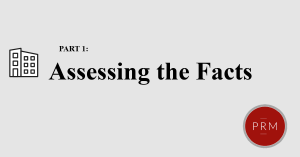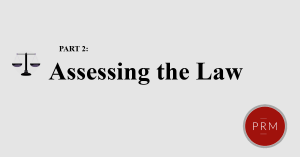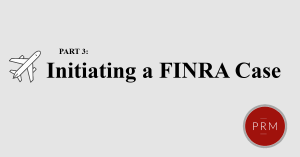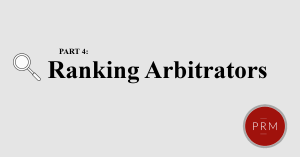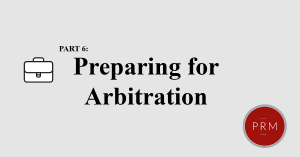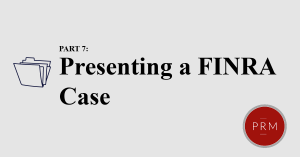How to Win a FINRA Arbitration
How to win a FINRA arbitration depends on several variables. There is no fool proof plan that describes how to win a FINRA arbitration. Winning as an investor is a difficult task regardless of the facts of the case. But the below guidelines shed some light on some of the steps investors and their counsel may take that might help put themselves in a better position for success.
Note that these guidelines are written from the perspective of an investor who wishes to pursue FINRA arbitration as a Claimant. For a better understanding of FINRA cases generally, please first read, “FINRA Arbitration: A Primer for Investors.”
Disclaimer: The following content is for information purposes only. It does not constitute legal advice. Following the guidelines on how to win a FINRA arbitration below DO NOT guarantee victory in a FINRA arbitration. Nor is it a comprehensive explanation of all considerations or strategic decisions Claimants and their counsel face in a given FINRA case.
FINRA cases (like all forms of civil litigation) are unpredictable no matter the facts or circumstances. Inexperienced parties should always seek the advice of competent counsel before attempting to pursue or defend a FINRA claim.
*The Law Offices of Patrick R. Mahoney is a full service law firm with extensive experience litigating FINRA cases. Please contact us for an assessment of your specific situation*
The initial case assessment is arguably the most important factor in determining how to win a FINRA arbitration. Parties who fail to properly assess a case from the beginning, the Claimant can lose before the case starts. Attention to detail in assessing the case is key.
Have a detailed understanding the facts
Understanding the facts means more than a peripheral comprehension of what happened. Parties must understand the facts in as much detail possible. This means understanding the “who, what, where, when, and why.” For example:
Who?
Who specifically engaged in the misconduct that caused the investment losses? Identify the Claimant or Claimants.
What?
What happened? Claimants should identify the specific misconduct that caused their alleged losses. Claimants should then identify what happened leading up to the misconduct and its aftermath.
Where?
Where did the relationship that gave rise the alleged misconduct begin, and where did the misconduct take place? If the bad actor(s) engaged in misconduct over several interactions, identify where each of those interactions took place. Where were the relevant agreements or contracts entered into? If interactions occurred over email or over the phone, identify the location of all parties when those interactions occurred.
When?
When did the investment relationship begin; when did the specific acts of alleged misconduct occur; and when were damages realized?
Why?
Why did the bad actor(s) engage in the misconduct? What was their motivation for doing so? Why was the Claimant in a particularly vulnerable position to be exposed to the alleged misconduct?
Have a detailed understanding of the documents that support the facts
Documents provide support for the facts. They also help flesh out the timeline of events, the specific representations made, and the misconduct itself. Documents lend credibility to the Claimant’s story. Documents are essential in FINRA cases.
Examples of common, key documents.
Key documents vary from case to case. But as a general rule, the following categories of documents regularly contain information necessary to support basic facts (this list is not exhaustive):
- New account documents
- Contracts between the investor and brokerage firm
- Trade confirmations
- Correspondence, including emails, text messages, and letters
- Monthly account statements
Calculate the Damages and Estimate the Costs
Claimants must have damages to have a viable FINRA case. Accurately calculating damages from the beginning is vital.
In FINRA cases involving investors, the damages are almost always monetary in nature. There are several categories of damages. Some of these categories are summarized below:
Compensatory Damages
Compensatory Damages are the Claimant’s monetary losses that the misconduct caused. Parties can calculate compensatory damages in a variety of ways. The Claimant and the Respondent in a FINRA case often disagree on how to calculate damages. Parties often seek the advice of an expert witness who specializes in calculating investment losses and other damages.
Punitive Damages
Punitive damages are damages meant solely to punish the respondent typically as a result of particularly egregious or willful conduct. The availability of punitive damages varies widely and is often fact-specific. Additionally, the specific laws of the applicable jurisdiction can limit punitive damages, or exclude them altogether. Therefore, these laws can impact the arbitrators’ willingness to award them.
Attorneys’ Fees
Attorneys’ fees are typically only available as a form of damages in limited circumstances. Generally, FINRA arbitrators may only award attorneys fees if the parties have an agreement that specifically calls for them. Or, where there is an applicable law that provides for them.
For example, in California, attorneys’ fees may be awarded if the parties have a preexisting agreement to award attorneys’ fees to the victor. As another example, California has a specific statute that allows for recovery of attorneys’ fees in cases involving elder financial abuse.
Costs of the Proceeding
FINRA arbitrators have broad authority to award parties reimbursement of costs associated with the proceeding. These may include (among other things):
- FINRA’s arbitration forum fees
- Witness and Production Fees
- Costs to transcribe the record
- Travel costs
- Expert fees
- Teleconference/videoconference fees
- Photocopying charges
- Mailing charges
Claimants should also estimate the cost to bring the case before determining to bring it. Occasionally, the cost to pursue the case, when set against potential recovery, make the case impracticable to pursue–even where liability and damages are present.
Claimants must have a legal basis to justify arbitration claims and causes of action. Properly identifying the legal bases for a FINRA case requires competent legal counsel. But some overarching legal concepts often applicable in FINRA cases are summarized below.
Identify the Relevant Causes of Action
A cause of action is a legal claim or grounds for filing a lawsuit. It refers to the specific legal theory or basis upon which the Claimant seeks relief from a FINRA arbitration panel. To have a valid cause of action, the plaintiff must be able to demonstrate that they have been legally wronged in some way by the defendant’s actions or omissions.
A FINRA arbitration case can involve different causes of action. But some common causes of action are provided below (follow the links for more information on each):
- Improper Asset Allocation;
- Breach of Fiduciary Duty;
- Churning and Excessive Trading;
- Failure to Supervise;
- Securities Fraud;
- Selling Away;
- Investment Suitability
- Unauthorized Trading;
- Financial Abuse
Note that causes of action and the legal bases for any claim depends on the applicable law of the jurisdiction where the FINRA arbitration takes place. While FINRA arbitrators are not required to apply the law of the relevant jurisdiction, the governing law of the jurisdiction can nevertheless be extremely persuasive.
Identify any Bars to Bringing the Claim, Including Relevant Statutes of Limitation
Claimants must research applicable statutes of limitation or eligibility rules that might prevent bringing an otherwise successful case. Accordingly, Claimants must have clear understanding of any time constraint that could impact case, or prevent bringing it altogether.
For more information about statutes of limitations and FINRA eligibility rules, please see parts 2 and 8 of FINRA Arbitration: A Primer for Investors.
Confirm that FINRA has Jurisdiction Over your Dispute
In general, parties must expressly agree to arbitrate their disputes. Otherwise, they must litigate their disputes in a traditional court. This rule applies to FINRA arbitration cases. Investors must have signed an agreement to arbitrate before FINRA for it to have jurisdiction to hear the case.
Generally, FINRA broker-dealers include an agreement to FINRA arbitration in the new account documents that they require investors to sign.
Nevertheless, parties must locate an express agreement to arbitrate their disputes before FINRA, and ensure that the parties have not agreed to resolve disputes in a different forum.
Once the party determines they have the facts and the legal bases for a FINRA arbitration case, they can initiate the case with FINRA.
Drafting the Statement of Claim
A FINRA Statement of Claim initiates a FINRA arbitration, much like a complaint initiates a lawsuit in court. FINRA arbitration rules simply provide that the Statement of Claim should, “address the relevant facts and remedies requested.”
FINRA’s broad and vague rule about what Claimants ought to include in the Statement of Claim means that Claimants can choose to write the Statement with as much, or little factual and legal detail as they chose. The specific circumstances and desired strategy should dictate.
Claimants should understand, however, that the Statement of Claim represents perhaps the first document that the arbitrators will review in consideration of the case. It also lays the factual and legal foundation of the case.
File the Case, Sign the Submission Agreement, and Pay the Filing Fee
Once the Claimant completes the Statement of Claim, they then file it with FINRA and pay the filing fee. Filing fees depend on the amount of damages alleged. The submission agreement confirms the Claimant’s agreement to submit to FINRA’s jurisdiction.
FINRA Arbitrator ranking represents an important component for parties who want to put themselves in the best position win a FINRA arbitration. The amount of damages alleged dictates the number of FINRA arbitrators that will hear the case. Generally, if the amount of damages alleged exceeds $100,000 the parties will have a 3 person arbitration panel. Less than $100,000 entitles the parties to only one FINRA arbitrator.
Read the Arbitrator Disclosure Reports for the Prospective Arbitrators
After the Claimant files the Statement of Claim, FINRA provides each party with a list of prospective FINRA arbitrators. The case might call for one or three arbitrators depending on the amount in controversy. FINRA also provides “disclosures” for each arbitrator that provides information of their background, FINRA award history, and potential conflict of interest information.
Parties must rank arbitrators in order of preference. Parties also receive a set number of “strikes” that enables them to strike a potential FINRA arbitrator for any or no reason. Claimants should also determine if they want an all public panel.
To rank arbitrators, parties should carefully read all of the disclosure information for all arbitrators. Parties should identify any potential conflicts of interest and background information that might make a prospective arbitrator favorably or unfavorably biased. Using that information, the party can rank as they see fit.
Sophisticated counsel have databases of information concerning prospective arbitrators to help in this process.
Note that qualifying as a FINRA arbitrator is one of the many available FINRA arbitration jobs for those who qualify.
Attend the Initial Prehearing Conference
Parties should attend the Initial Prehearing Conference (IPHC). IPHC covers scheduling for the case, including arbitration hearing dates and other deadlines.
The IPHC is the parties’ first formal introduction to the arbitrators, and it’s important to make a good first impression.
Discovery represents the portion of the case where the parties exchange documents and information that could lead to admissible evidence if the case goes to arbitration. Discovery is a key component to having success in FINRA arbitration. Put simply, if you don’t have the documents you need to prove the case, it’s virtually impossible to win.
Gather the relevant documents Claimant must Produce
Discovery is a two-way street. And both sides are entitled to documents. Accordingly, Claimants ought to gather the relevant documents and information that the Respondent requests. In doing so (and preferably before the case is filed) the Claimant should identify the documents in their possession that help the case. And those documents that can potentially hurt the case.
Identify the Categories of Documents and Information Necessary to Prove the Case
Knowing the documents to pursue represents one of the key factors that dictate how to win a FINRA arbitration. Claimants should understand the categories of documents and information that they do not possess, necessary to prove their case. They ought to identify and distinguish these categories of documents and information from those are presumptively discoverable under the FINRA Discovery Guide. Claimants should then craft discovery requests that seek those categories of documents and information.
Determine if the Claimant Needs any Documents from Third Parties
Claimants should also identify relevant documents or information that third parties might possess (another brokerage firm where the Claimant holds accounts, for example).
Once identified, Claimants should take steps to subpoena or seek orders of production of those relevant documents.
Meet and Confer with the Respondent on Discovery Issues
If issues arise with the other side about the relevance of specific requested documents or information, FINRA rules require parties to meet and confer in good faith.
Claimants ought to meet and confer with the respondent in good faith if discovery disputes arise for several reasons:
Reason 1:
Most importantly, the FINRA Rules require parties to meet and confer in good faith on discovery disputes. Accordingly, failure to meet and confer is violation of FINRA rules, which arbitrators do not appreciate. How to win a FINRA arbitration can depend on rapport with the arbitrators.
Reason 2:
Meeting and conferring in good faith, and acting reasonably, gives the Claimant an opportunity to gain credibility with the Respondent and the arbitrators. It also requires the Claimant to sharpen their arguments for why the documents or information sought are relevant.
Reason 3:
With credibility established from good faith meeting and conferring efforts, Claimants can improve their chances of winning a motion to compel the documents or information they seek if it becomes necessary.
After the parties complete the discovery process (and ideally during the discovery process), Claimants ought to begin preparing the case for the arbitration.
Organize Arbitration Hearing Exhibits
Claimants should organize the documents and information that Claimant believes she will need to use as evidence at the arbitration hearing. Ideally, Claimants should begin to organize and identify relevant documents early on.
The amount of documents that Claimants need to use as exbibits depends entirely on the facts.
Claimants should organize their documents in a way that the arbitrators can follow easily that presents the facts in a way that tells a compelling story.
Identify Relevant Witnesses and Order of Witnesses
Witnesses provide oral testimony that arbitrators can consider as evidence. Witnesses also authenticate relevant documents that parties enter into evidence and establish important facts.
Identifying the proper witnesses, and the proper order of witnesses helps tell the story of the case in a way the arbitrators can follow.
If needed, Claimants should timely retain an expert qualified to provide necessary opinion testimony about the case. FINRA cases filed often involve complex securities-related topics that qualified experts can help explain through expert testimony. How to win a FINRA arbitration can hinge on credible expert testimony.
Prepare a Arbitration Hearing Briefs if Needed
Often arbitrators will enable the parties to submit pre or post arbitration hearing briefs that support the case. Briefs may be used as strategy dictates. They can provide an outline of relevant issues claimant intends to present at the hearing. Or, briefs can provide legal analysis on a wide range of issues that the panel may need to parties to clarify using appropriate legal authority.
Briefs are often optional. And there may be strategic reasons to prepare a brief, or to not prepare a brief.
Follow the Panel’s Order(s)
While it sounds obvious, parties should always follow the arbitrators’ orders, promptly and thoroughly. It is rarely a good idea to refuse to comply with the arbitrators’ orders.
When it comes time to present the case at the formal arbitration hearing, Claimants ought to be totally prepared with documents and exhibits they intend to use; with copies of all documents available for the arbitrators, opposing counsel, and witnesses. They ought to have an opening statement prepared and a detailed plan on the questions and documents they intend to ask and present to each witness.
Claimants case should not waste time. It should be streamlined and easy for the arbitrators to follow. Closing argument should succinctly, but thoroughly summarize the evidence and provide thoughtful, reasonably argument about why the Claimant provide their case; and the precise damages to which they are entitled.
*The Law Offices of Patrick R. Mahoney is a full service law firm with extensive experience litigating FINRA cases involving a host of securities-related issues. This page is for information purposes only and does not constitute legal advice. Following these guidelines in no way guarantees victory, nor do they provide a comprehensive explanation of how to win a FINRA arbitration. FINRA cases (like all forms of civil litigation) are unpredictable no matter the facts or circumstances. Inexperienced parties should always seek the advice of competent counsel before attempting to pursue or defend a FINRA claim.
If you believe you have a claim, CONTACT US FOR MORE INFORMATION

